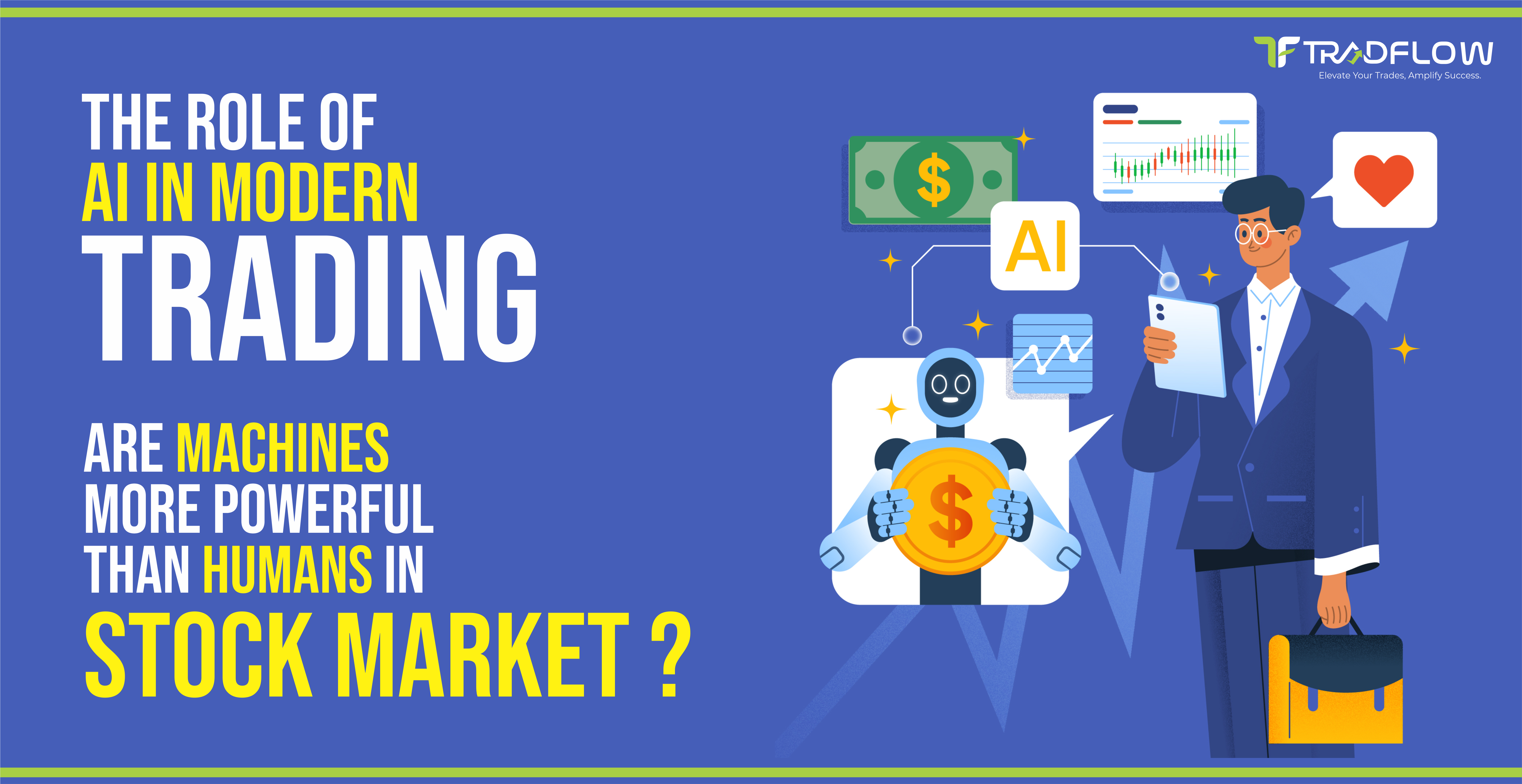The Role of AI in Trading: Are Machines More Powerful than Humans in Stock Market?
With the Introduction of Artificial Intelligence (AI), and related machine learning technologies in recent years, financial markets have experienced a significant shift. Asking questions while writing on how AI is transforming the Stock trading landscape and what it actually means for traders-in the Indian context, we shall discuss the role that these advancements are playing in replacing human traders with robots (machines).
Understanding AI and Machine Learning
AI in trading refers to the simulation of human intelligence in machines designed to perform tasks that typically require human intelligence, such as analyzing data, recognizing patterns, and making decisions. Machine learning, a subset of AI, allows systems to learn from data and improve their accuracy over time without explicit programming.
In trading, these technologies are used for high-frequency trading, predictive analysis, and risk management, among other applications. In bustling stock markets, AI in trading can analyze large datasets faster than any human, identifying trends and executing trades based on predefined algorithms.
AI in Action
Consider the example of Indian unicorns in Stock Trading companies. They have embraced technology to enhance the trading experience. Their platform, for instance, employs algorithmic trading features powered by AI to help traders make informed choices. They analyze historical price data, enabling them to detect patterns that human traders might overlook.
The rising volatility of the market in the time of the pandemic urged most retail investors to increased trading in equities. AI-based platforms gave the user deep, customized insights and recommended further steps; hence even the inexperienced trader was better equipped to handle their portfolio and navigate through the market more effectively.
The Advantages of AI in Trading
Speed and Efficiency:
AI in trading can process vast amounts of data in seconds. This speed is particularly beneficial for high-frequency trading, where profits come from small price changes over numerous trades.
Data Analysis:
AI based business modeling can analyze news articles, social media sentiment, and financial reports to predict market movements. For instance, if there's negative sentiment surrounding a particular stock on social media, AI can flag it quickly for traders.
Reduced Emotional Bias:
AI in trading can change a lot for, traders who often fall prey to emotional decision-making—fear during downturns and greed during market ups. AI operates on data, minimizing emotional influences that can lead to poor choices.
Customized Strategies:
Using machine learning, trading algorithms can adapt to changing market conditions, offering customized strategies that align with an investor's risk tolerance and objectives.
Million Dollar Question - Are Robots Replacing Human Traders?
Even, as AI is making a mass leap in the trading world, the question is whether robots are taking it over. This is far from the truth. While AI can most effectively handle transactions and analyze data, this is not intuitive, nor does it have any emotional intelligence that human traders do possess.
Consider the situation during a market collapse, AI can respond quickly based on the data. By selling shares across the board to reduce risk. without understanding the long-term effects or specific circumstances of each company. Stock Traders like Tradflow, on the other hand, can consider many different factors, such as a company's fundamentals. Management decisions Sector performance, etc., before proceeding.
The Future: A Partnership between Humans and AI
Rather than viewing AI as a replacement for human traders, it’s more accurate to see it as a powerful tool that enhances trading strategies. The future of trading likely lies in a hybrid model—where human insights and intuition work alongside AI capabilities.
Indian traders can leverage AI tools to improve their trading strategies while still applying their own market knowledge and judgment. As we see advances in AI technology, the role of human traders is evolving from execution to strategy and oversight.
Conclusion
The rise of AI and machine learning in trading is undoubtedly transforming the financial landscape. While these technologies provide speed, precision, and data-driven insights, they do not yet replace the need for human judgment. As traders in India and around the world navigate this new landscape, accept AI as a partner rather than a competitor can lead to more informed and successful trading decisions in the long run.
Disclaimer: I should be stating that, I am not SEBI certified Research Analyst, do your own due diligence before investing or ask your investment advisor.








